A Study of Chinese Capital Flows to Six Countries

Chinese outward investments have increased substantially in recent years, especially after 2013’s introduction of its Belt and Road Initiative (BRI). BRI is the most ambitious infrastructure investment effort in recent history. The effect of BRI in Southeast Asia has been a tremendous volume of capital rushing in over a very short period of time. Chinese capital (including foreign direct investment, aid, and commercial loans) offers many benefits. It contributes to economic growth, job opportunities, and better-connected infrastructure networks in local economies. However, a growing volume of evidence indicates that many forms of capital emanating from authoritarian nations have a corrosive effect on democratic institutions and private enterprise in recipient countries.
The genesis of this publication was a CIPE forum in December 2017 at which CIPE’s Southeast Asian partners expressed the urgent need to fill the information gap of the impact of corrosive capital on governance distortions. Local researchers and analysts across the region have identified an absence of evidence in the existing body of work on Chinese investment projects and the impact on the local economies and communities. Additionally, researchers and scholars sought greater clarity on specific gaps in governance through which Chinese capital can flow.
This report analyzes the patterns, trends, and characteristics of Chinese investments in Southeast Asia. Against the backdrop of the rising flood of Chinese investment across the region, the report highlights common issues and shared governance risks across countries, and identifies questions requiring further study. The sizable economic interests and political intricacies of China and BRI make this research sensitive in some countries; as result, some information has been redacted from the final report.
Countering corrosive capital requires working closely with local partners in vulnerable countries. In each case, the specific governance gaps which place democratic institutions at risk must be identified. In cooperation with local partners, CIPE can then design and implement local projects to help close those gaps and reinforce democratic institutions by fostering collaboration and information sharing among civil society, the private sector, and lawmakers.
Chapter Reports (click pictures to download PDFs)
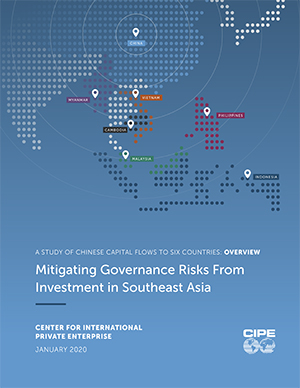
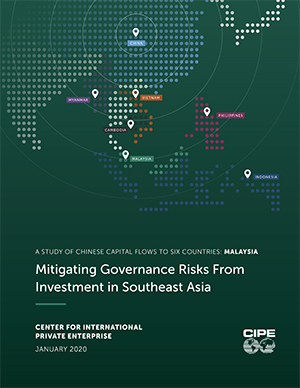
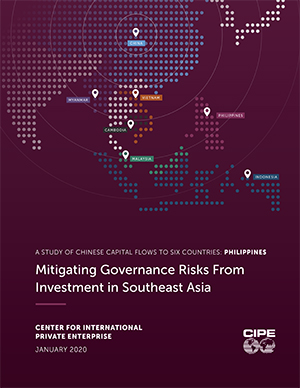
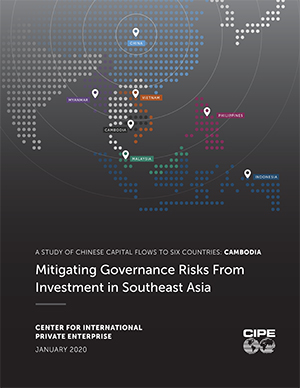
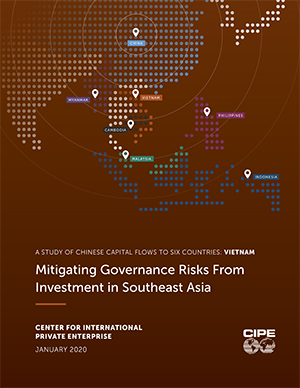
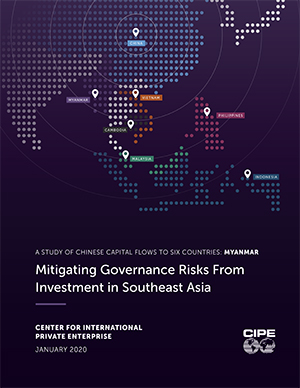
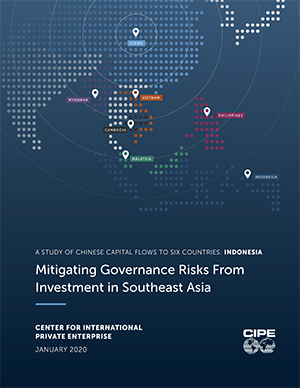
Published Date: April 08, 2020
